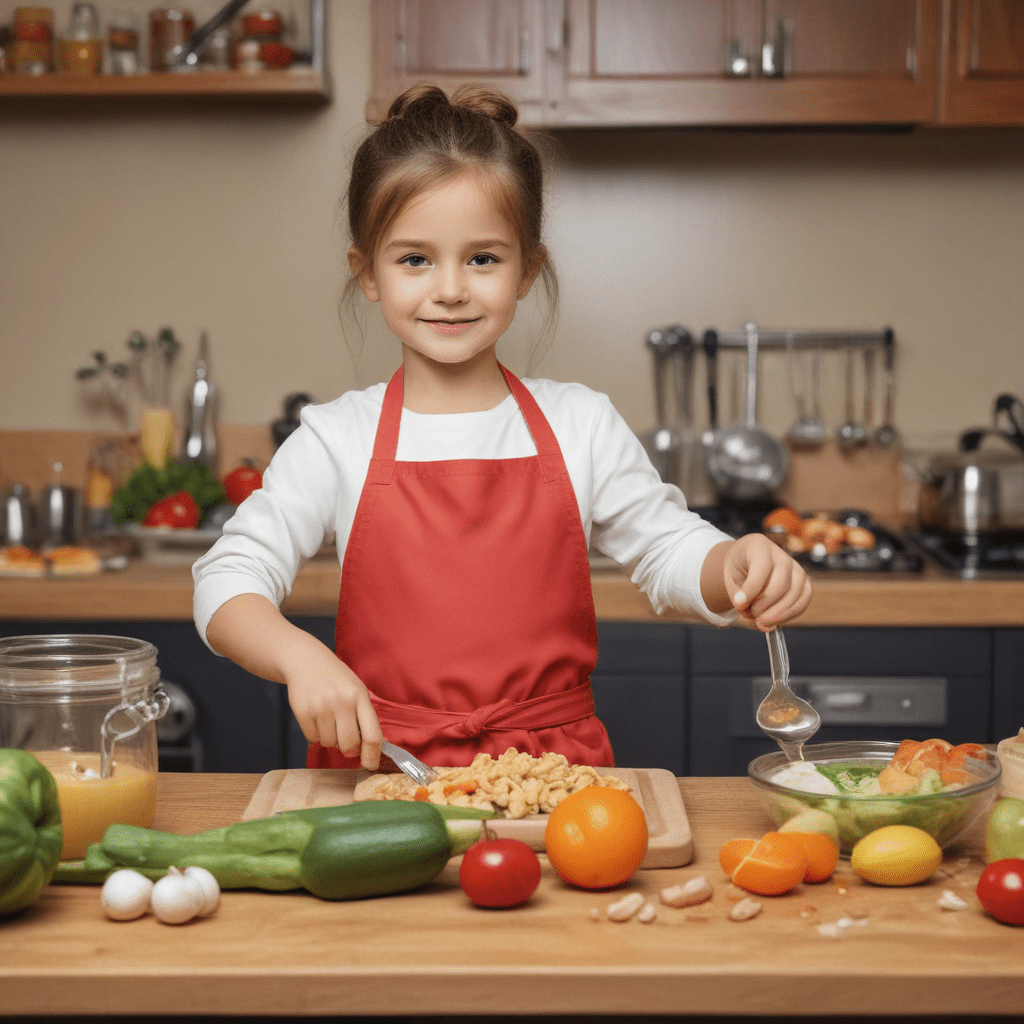
1. Introduction
Childhood nutrition is a critical determinant of lifelong health outcomes. However, many kids struggle to embrace healthy eating habits. Cooking experiments present an innovative approach to nutrition education, transforming food into a captivating and interactive experience that fosters healthy eating habits from a young age. Through engaging hands-on activities, kids discover the fun and science behind nutritious food choices, laying the foundation for lifelong well-being.
2. Establishing a Fun Learning Environment
Creating a safe, engaging, and kid-friendly cooking space is key. Ensure the work area is accessible, well-lit, and stocked with age-appropriate utensils. Encourage curiosity and exploration by allowing kids to ask questions, experiment with ingredients, and make informed choices. Foster a supportive environment where mistakes are learning opportunities, and creativity is celebrated.
3. Selecting Experiments that Align with Nutrition Goals
Tailor cooking experiments to specific nutrition goals, such as increasing fruit and vegetable consumption or understanding portion control. Experiments can demonstrate the scientific principles behind healthy eating, such as the role of fiber in promoting satiety or the importance of vitamins for growth and development. By connecting nutrition concepts to hands-on activities, kids grasp complex topics more effectively.
4. Incorporating Interactive and Hands-On Activities
Taste tests develop sensory perception, helping kids identify and appreciate different flavors. Building models of food molecules or cells fosters an understanding of food composition. Interactive games, such as food charades or nutrition trivia, reinforce learning in a playful and engaging manner. By making nutrition education interactive and hands-on, kids become active participants in their own learning journey.
5. Empowering Kids with Kitchen Confidence
Cooking experiments offer an empowering opportunity for kids to develop kitchen confidence. Teach them basic cooking skills, such as measuring, mixing, and chopping. Encourage them to take ownership of their creations, empowering them to make independent and healthy food choices. By fostering kitchen confidence, kids gain a sense of accomplishment and learn the valuable life skill of preparing nutritious meals.
6. Exploring Different Food Groups
Expose kids to the diverse world of food groups through interactive experiments. Create fruit and vegetable platters with different textures, colors, and flavors to encourage exploration. Demonstrate the versatility of whole grains by baking homemade bread or making oatmeal from scratch. Explore the lean protein options available by cooking chicken, fish, or beans together. By experiencing the variety of whole foods, kids develop a comprehensive understanding of balanced nutrition.
7. Understanding Portion Control
Portion control is a crucial aspect of healthy eating. Use visual demonstrations to illustrate appropriate serving sizes for different food groups. Create a "healthy plate" model with compartments for fruits, vegetables, grains, and protein. Encourage kids to estimate portion sizes before assembling their own meals. By understanding portion control, kids learn to make informed choices and avoid overconsumption.
8. Encouraging Healthy Hydration
Hydration is essential for overall health. Demonstrate the importance of water through experiments that show how it affects the body's functions. Create infused water with fruits or vegetables to enhance its appeal. Encourage kids to monitor their water intake and set goals for daily consumption. By fostering a positive relationship with water, kids develop a lifelong habit of staying hydrated.
9. Fostering a Positive Relationship with Food
Avoid judgment or shaming when discussing food choices. Emphasize the joy and pleasure of cooking and eating healthy. Encourage kids to experiment with flavors and create their own healthy recipes. Celebrate their culinary creations and foster a positive self-image around food. By promoting a healthy relationship with food, kids learn to appreciate nourishment without fear or guilt.
10. Evaluating and Adapting the Program
Regularly collect feedback from kids and parents to evaluate the effectiveness of the program. Make adjustments based on their experiences to ensure ongoing engagement and impact. Continue to research and incorporate new evidence-based nutrition education strategies. By evaluating and adapting, the program remains relevant and responsive to the evolving needs of kids.
FAQ
Q: What are the benefits of nutrition education through cooking experiments for kids?
A: Cooking experiments engage kids, foster healthy eating habits, empower them with kitchen confidence, and promote a positive relationship with food.
Q: How can I make cooking experiments fun and engaging for kids?
A: Create a safe and inviting learning environment, incorporate interactive activities, and tailor experiments to their interests and developmental stage.
Q: What are some tips for teaching kids about portion control?
A: Use visual demonstrations, create a "healthy plate" model, and encourage kids to estimate portion sizes before assembling their meals.
Q: How can I encourage healthy hydration in kids?
A: Demonstrate the importance of water through experiments, create infused water to enhance its appeal, and set goals for daily water consumption.
Q: What are some strategies for fostering a positive relationship with food in kids?
A: Avoid judgment or shaming, emphasize the joy of cooking and eating healthy, encourage experimentation with flavors, and celebrate their culinary creations.
